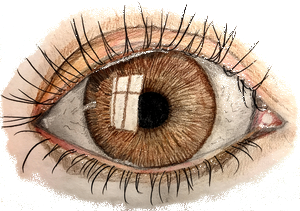Leila Chapter E
So I got a new agent.
She is lovely!
The main thing is that she loved Leila! I had revised it another couple of times and she said that it painted a proper picture of someone in Leila’s position. She said the characters and the settings were rich and believable. And she said that the relationship with Duke was sensitively handled. What she meant by this was that it never got creepy or weird (which it could have done). The man is a decent person who genuinely seems to want to bring his experience of life into Leila’s. That is a good thing. He never invites her into the house or anything like that. They always sit - him on his chair, her on her log stool.
She also mentioned the term neurodiverse to describe Leila. I had never thought of her that way - to me she was just a bit different and a bit special. But if the truth is that her brain perhaps works a little unconventionally, I like that. I still think she could go far!
So agents are a strange breed. You kind of need them, but you wish you didn’t.
This new agent is called Susan. When I first showed her the draft of the book - an early draft - she described it as ‘quite good’. That is called damning with faint praise! It isn’t rude, it just means that you are saying you like something, but you are not getting really enthusiastic about it. So her praise for the book was a bit faint. A bit feeble.
But she is a good person, and she had suggestions. For example, she said that Duke needed a clear back story. What that means is that he could not just sit there each day and help Leila through her life without having some experience or something relevant to be able to advise her. So we set him up as a former teacher. Hopefully a decent person.
At one point Duke tells Leila that he left his job (to care for his wife) after twelve years. Imagine all that he would have seen! Good days, and good classes, where everything fell into place and everyone did as they were told. Bad days, when his lessons were boring or badly prepared, and the children picked up on that. The occasional difficult pupil. A myriad of difficult parents. Children with joys, and fears, and challenges.
Children, like Leila, who were just considered a bit different.
Duke says to Leila at one point that the tricky classes and the difficult children were those from whom he learned the most. The children with special talents, who thought differently, who acted differently, who challenged his experience and forced him to dig deep to try to help them. The children who probably benefited most from his support. The constantly needy ones. The fledglings who struggled to fly. The ugly ducklings. But often the most majestic, soaring young adults.
So Susan kind of liked the first draft but really helped to improve it through drafts two and three.
She takes twenty percent of whatever I earn from the book. That is one fifth! If I sold a million copies she would make about two hundred grand. Up to this point, she has earned absolutely nothing, because I have sold no copies, and made flat nothing from it. In fact she has cost me money! She suggested I get a hundred copies bound and printed so that I could show them to potential readers, test them with the sorts of children in my target market, and so on. That cost me nearly a thousand quid!
But today, Susan came with some very good news.
She has been speaking to a publisher who may be willing to take the book on. That means someone who is prepared to print it, bind it, advertise it and get it into all the major booksellers! That is such a big step forward! The publisher will also appoint an editor, who will help to make further improvements. You know, I’ve had some dreams in my life, but this is really like one of those dreams becoming reality. A published author? I am getting closer.
Susan has put together a kind of timeline for what happens next. There will be meetings, with an editor who will help get a final version ready for publication, and with the publishers themselves. I don’t really like meetings.
Have you ever thought how much it costs to produce a book? Of course, these days much of the work (the basic writing, typesetting, formatting and so on) is done on a computer. Most of it by me in the case of Leila. But the costs of ink, paper and binding are colossal. Then you have the costs of creating covers and artwork, which need proper input if you are going to have something displayed on a shelf begging to be bought. Then there are the costs of getting it on display in important shops like WH Smith, Waterstones, and of course Amazon. Finally there will be a big social media and marketing campaign, to try to encourage more people (like you) to read it.
After all that, Susan reckons a hardback version will sell for £11.49, the paperback for £6.99 and the electronic (eBook) version for about £2.99. The net effect of all that is that I (the most important person in all of this!) might be lucky to receive £1.00 a copy. Not fair! I wrote the thing! Without me, there is no binding or advertising or marketing! Anyway, apparently that is the way it goes. And again, as we haven’t sold anything, there is nothing to calculate.
And no twenty percent for Susan either!
Print all of Leila



Your comment has been posted.